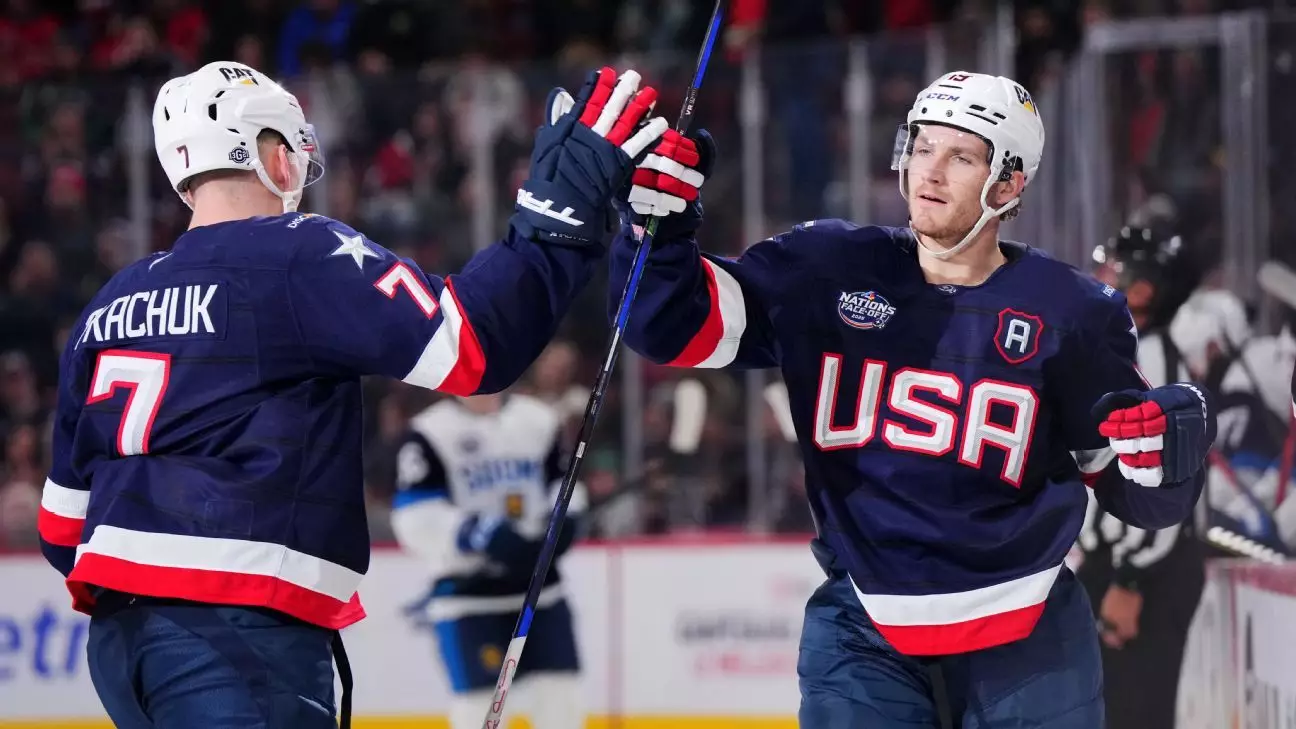The world of professional sports often serves as a microcosm for broader societal issues, and the recent NHL 4 Nations Face-Off championship game between Canada and the United States is no exception. More than an athletes’ showcase, this tournament became a stage for political dialogues—a reflection of the current geopolitical climate. Hours before their pivotal match, players from both teams found themselves drawn into discussions that transcended the ice, as the political commentary surrounding President Donald Trump loomed large, shaping the narrative of the day.
In an astonishing twist, President Trump took the time to personally call players from Team USA, an experience that several athletes described as surreal. The excitement surrounding this notable call highlighted not only a moment of pride for the players but resonated further with the American public. For example, Vincent Trocheck expressed his awe, characterizing the call as “one of the cooler experiences” of his life. His teammate, J.T. Miller, echoed this sentiment, emphasizing the significance of receiving encouragement from such a high-profile figure.
However, amidst the celebratory tone, the political undercurrents were palpable. Trump’s remark on his social media platform regarding Canada potentially becoming the “51st state” was not lost on either side. It served as a reminder of the simmering political tensions, cleverly intertwined with the fierce sporting rivalry, which provided a backdrop to the championship game.
Sportsmanship Amidst Rivalry
As players geared up for their match, the atmosphere was charged with intensity, not just from the impending contest but also due to the wider conversations swirling up around them. Both teams were acutely aware that the stakes extended far beyond a mere victory on the scoreboard. For many players, representing their countries amid such political banter added importance to their performance on the ice.
Interestingly, the pre-game banter did not deter the athletes’ focus. Instead, Team Canada’s coach, Jon Cooper, reflected on the camaraderie that often endures even when facing political rhetoric. He acknowledged the absurdity of some comments while emphasizing that the essence of the game lay in sportsmanship and collective pride. His comments drew a distinction between the importance of national representation and the noise generated by political commentary, highlighting a vital tenet of sports: unity amid rivalry.
The fervor that characterized the matchup was further evidenced by the increasing animosity displayed during the previous game, where fan reactions escalated into booing during national anthems and an unusual spike in on-ice altercations. Such scenes illustrated that the stakes were high, and emotions were flaring. The earlier contest, which ended with a narrow victory for Team USA, set the stage for heightened anticipation for the rematch.
The question remained: could these political narratives coexist with the game’s integrity? Coaches and players alike grappled with this complexity, aware that their performances could ripple into discussions far beyond the ice, impacting national sentiments. As they prepared for the rematch, it became a matter of not just physical skill but also demonstrating resilience in the face of external pressures.
The NHL 4 Nations Face-Off was more than just a sporting event; it encapsulated a complex intermingling of national pride, political rivalry, and the pursuit of excellence in sports. As players took to the ice, they carried not just their aspirations but the weight of an entire nation’s expectations, proving that in the world of sports, every game can provoke discussions that echo well beyond the final whistle. The intersection of sports and politics creates a landscape where athletes must navigate fan expectations while delivering their best performances, a dance between competition and representation that defines this unique era in sports.

